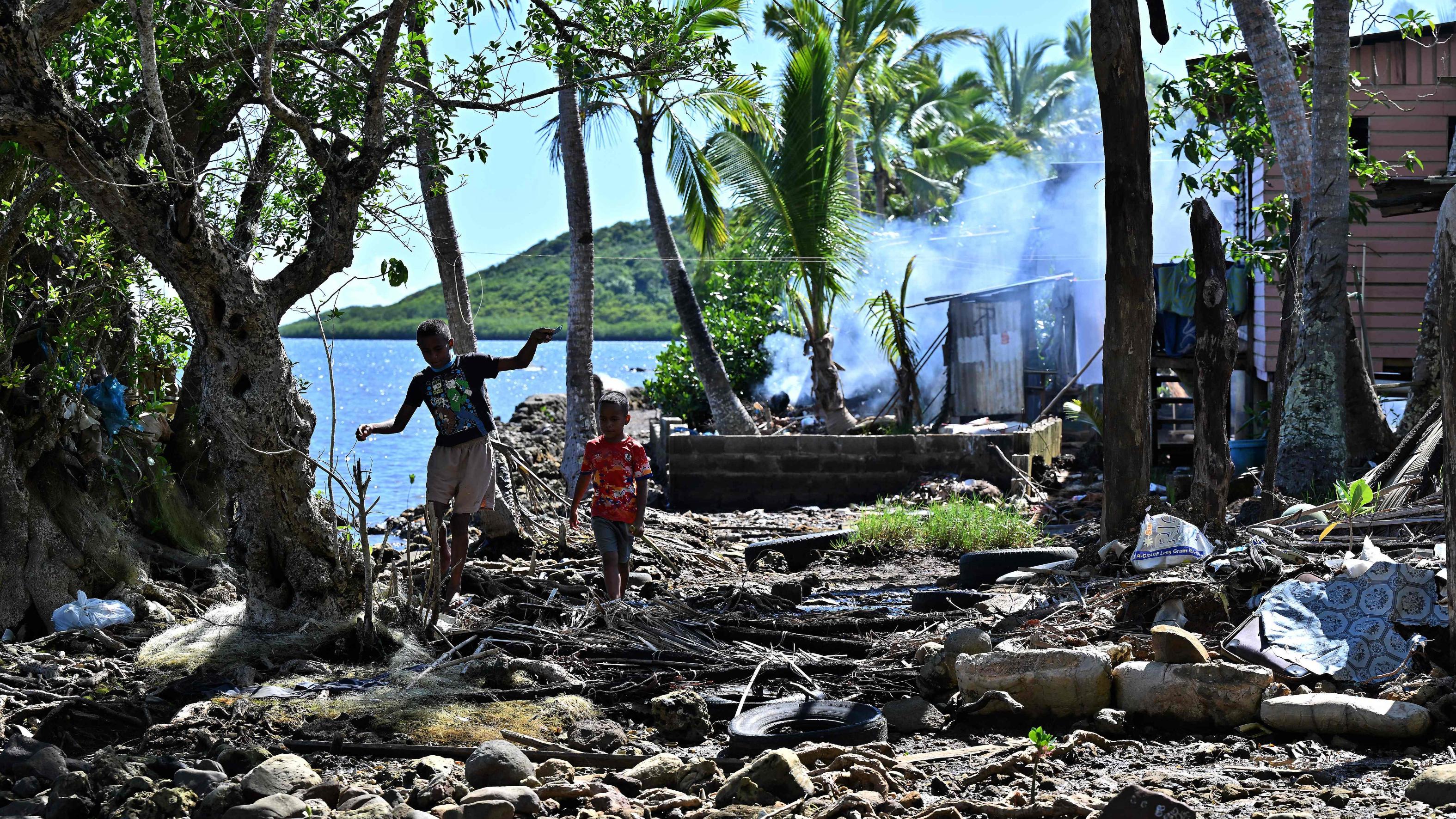 This handout photo taken on March 10, 2023 and received on March 11, 2023 from the Queensland Police Service shows an aerial view of the flooded northern Queensland town of Burketown. (HANDOUT / QUEENSLAND POLICE SERVICE / AFP)
This handout photo taken on March 10, 2023 and received on March 11, 2023 from the Queensland Police Service shows an aerial view of the flooded northern Queensland town of Burketown. (HANDOUT / QUEENSLAND POLICE SERVICE / AFP)
GENEVA - Sea levels in the South-West Pacific are rising faster than the global average, threatening low-lying islands while heat damages marine ecosystems, the UN meteorological agency said on Friday.
In its State of the Climate in the South-West Pacific 2022 report, the World Meteorological Organization (WMO) said water levels were rising about 4 mm per year in some areas, slightly above the global mean rate.
That means low-lying territory such as Tuvalu and the Solomon Islands over time could become flooded, destroying agricultural and habitable lands with inhabitants unable to move to higher elevations.
The faster rise in sea levels in the South-West Pacific means low-lying territory such as Tuvalu and the Solomon Islands over time could become flooded, destroying agricultural and habitable lands with inhabitants unable to move to higher elevations
The report added that marine heatwaves had occurred in a large area northeast of Australia and south of Papua New Guinea over more than six months, affecting marine life and the livelihoods of local communities.
ALSO READ: WMO: Effects of climate change increasing in Asia
WMO Secretary-General Petteri Taalas said that El Nino, a warming of water surface temperatures in the eastern and central Pacific Ocean that returned this year, would strongly affect the region.
"This will have a big impact on the South-West Pacific region as it is frequently associated with higher temperatures, disruptive weather patterns and more marine heatwaves and coral bleaching," Taalas said in a statement.
The region last year recorded 35 natural hazards, including floods and storms, that killed more than 700 people, according to the report. These hazards directly affected more than 8 million people.
 Children walk outside beachfront houses threatened by coastal erosion in the town of Veivatuloa, Fiji, in December. The country has been preparing meticulously for the day it needs to relocate coastal villages because of climate change. (PHOTO / AFP)
Children walk outside beachfront houses threatened by coastal erosion in the town of Veivatuloa, Fiji, in December. The country has been preparing meticulously for the day it needs to relocate coastal villages because of climate change. (PHOTO / AFP)
Although the number of reported disaster weather events in the region decreased last year compared to 2021, the scale of economic losses due to flooding and weather events increased, according to the report.
READ MORE: WMO: 'More likely than not' world to see 1.5 C of warming
Flood damage, including in Australia and the Philippines, amounted to $8.5 billion, almost triple the previous year.


